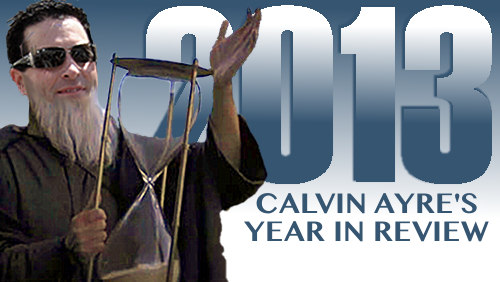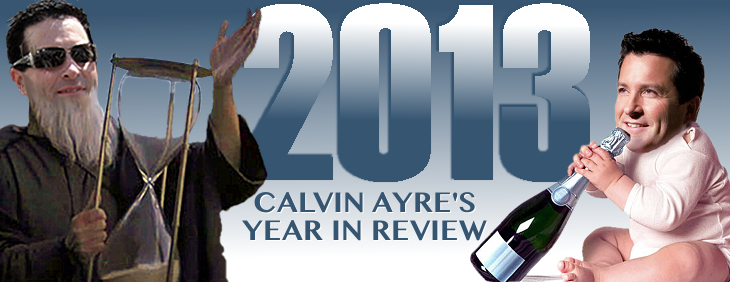
NORTH AMERICA
► The year’s biggest story was undoubtedly the launch of state-sanctioned online gambling in America. My prediction last December that New Jersey wouldn’t be taking its first online wagers until 2014 was off by a little over a month, but I underestimated Garden State officials’ desire to fling poo at their Nevada counterparts, who, along with their federal champion Harry Reid, had long insisted that Nevada was the only US regulatory body capable of overseeing an online gambling market. New Jersey can now point to its successful management of virtually every type of online gambling bar sports betting, while not even Bwin.party now believes launching a poker-only product serving Nevada’s 2.5m residents is worth the effort.
► I might have missed the Jersey timeline, but 2013 did confirm my longstanding prediction that online gambling’s US political acceptance would be at the state level. There were a couple new federal legislative efforts in the House of Representatives this year – even lobbyists have to show receipts, after all – but they reminded me of a football team coming out of the locker room ready to play the THIRD half. Sorry, guys, but this contest is over and it wasn’t even close.
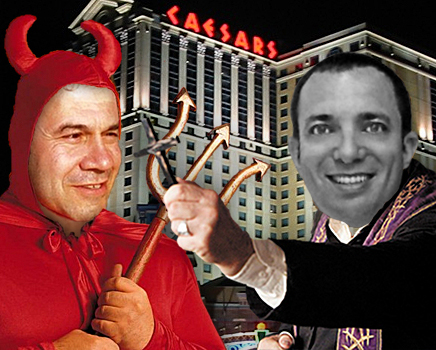
► Last year at this time, PokerStars was sitting pretty, having signed on the dotted line to buy the Atlantic Club Casino Hotel. Now, barring a resolution to the Black Friday criminal charges facing Stars’ founder Isai Scheinberg, New Jersey has made it clear that Stars will be on the outside looking in at the state’s online gambling market. We’ll never know whether Stars would have been invited in had Caesars Entertainment not used the American Gaming Association as a Stars-slurring sock puppet, but if it helps Scheinberg feel any better, Stars is doing business in Macau and Caesars isn’t.
► Sticking with New Jersey, I misjudged the US federal court system’s willingness to overlook the blatant inequality behind Nevada’s monopoly of single-game sports betting. Blind fools to a man, the federal judges not named Thomas Vanaskie upheld the constitutionality of the federal PASPA restrictions, somehow arriving at the conclusion that prohibiting someone from exhaling is different from ordering them to hold their breath. Then again, the constitution was written by a bunch of slaveholders who declared all men were created equal, and I believe the right to hypocrisy was enshrined in the third amendment or something.
► Social gaming’s ability to convert players into real-money gamblers remained a dubious prospect, as demonstrated by Zynga’s DOA real-money efforts in the UK. But the encouraging revenue figures posted by social casino companies like IGT’s DoubleDown Casino demonstrated that selling virtual credits might be a perfectly profitable end game in itself.
 ► Virtual currencies finally grew big enough for US regulators to take notice, leading to the takedowns of the Liberty Reserve and Silk Road sites. Then the Treasury Department’s FINCEN watchdogs justified their crackdown on a US subsidiary of the Mt. Gox Bitcoin exchange by saying the company had failed to register as a money services business, while US banks responded by cutting ties with US businesses that transacted in Bitcoin, regardless of whether or not these firms had followed FINCEN’s guidance. This Kafkaesque approach bodes well for my own 2014 alternative currency project, Kafcoin, which will require all banks to register with people who AREN’T their customers.
► Virtual currencies finally grew big enough for US regulators to take notice, leading to the takedowns of the Liberty Reserve and Silk Road sites. Then the Treasury Department’s FINCEN watchdogs justified their crackdown on a US subsidiary of the Mt. Gox Bitcoin exchange by saying the company had failed to register as a money services business, while US banks responded by cutting ties with US businesses that transacted in Bitcoin, regardless of whether or not these firms had followed FINCEN’s guidance. This Kafkaesque approach bodes well for my own 2014 alternative currency project, Kafcoin, which will require all banks to register with people who AREN’T their customers.
► Consolidation was the name of the game in the US land-based gaming supplier industry, with Bally Technologies fusing with SHFL Entertainment and Scientific Games teaming with WMS Industries. I guess now that the ranks of senior citizens pushing their buttons are thinning, slot machines must be huddling together for warmth.
► Another year brought more stalling by the US Trade Representative (USTR) on owning up to its World Trade Organization (WTO) obligations vis-à-vis Antigua. If and when – my money’s on when – Antigua does launch their WTO-authorized program of royalty-free digital downloads of US intellectual property, they ought to give away a copy of Groundhog Day with every purchase.
► What is there left to say about Las Vegas Sands’ Sheldon Adelson except he would have made a great old school Bond villain? All that’s left is for Dr. No No No to threaten to destroy the Isle of Man with the death ray hidden in his wheelchair.
EUROPE
► All UK-facing companies are staring down the barrel of the new 15% point-of-consumption tax (POCT) late in 2014, but some are better positioned than others to take the blow. Like Bet365, which never followed the herd in relocating its online sportsbook to Gibraltar. Far from the prying eyes of the public markets, privately held Bet365 doesn’t share its financial numbers all that often, but when they do, they’re the envy of the industry.

► William Hill was also among the year’s winners, despite CEO Ralph Topping having written company checks worth close to a billion pounds this year to buy (a) Sportingbet, (b) TomWaterhouse.com, and (c) a divorce from Playtech’s Teddy Sagi. Hills also continued to grow its operations in Nevada, although its New Jersey play was spoiled when the state’s sports betting bid got shot down in the courts.
► Betfair fended off a takeover bid and rebounded (somewhat) from the plunge it took after CEO Breon Corcoran pulled the company out of a number of grey markets. But Betfair’s black ink came only after pink slips were handed to hundreds of employees and the company having shifted somewhat from its exchange betting core by bolstering its fixed-odds betting offering.
► Betfair’s rebound likely gave courage to Bwin.party and Ladbrokes, both of which experienced similar swoons this year, except neither has yet hit bottom. Simply put, Ladbrokes are a bloody mess. Online profits are less than a quarter of what they were when CEO Richard Glynn took over three years ago and the company issues profit warnings as often as I order fresh rounds of drinks. It remains to be seen whether Glynn gets the boot before (a) Lads’ overdue Playtech-powered online platform goes live or (b) that waitress returns with my Hendricks & Tonic.
► Like Betfair, Bwin.party also pulled out of all its grey markets – at least, all the ones not named Germany – with similar damage to its bottom line, but high hopes remain for the company’s US debut in New Jersey, which was only made possible after PartyGaming’s founders agreed to sell their holdings and Bwin.party cut the state of Kentucky a $15m ransom check. (Last year, my graphics guys predicted the amount would be $25m, but perhaps a finger slipped while typing that first digit.)
► Elsewhere, Germany managed to go yet another year without issuing any sports betting licenses. While the EU did find time to call out Sweden over its betting monopoly, Greece somehow escaped censure for continuing its blatantly protectionist ways, probably because every time the EU calls Greece on the phone, it ends up costing Angela Merkel another billion or twelve in bailouts.
► Companies serving the newly regulated markets in Italy and Spain found out what those serving the tax-happy French market learned a couple years back. One or two of you is going to make money, while everyone else pays through the nose to get reamed up the ass. If there’s any positive here, it’s been to convince other Euro-zone countries that attempting to repay their national debt solely via online gambling taxes isn’t sound fiscal planning.
ASIA
► Despite the year beginning with rumors of a crackdown on mainland junket operators, Macau casinos defied skeptics by posting yet another impressive revenue performance, including multiple new monthly records. (Seriously, people –1.3b Chinese, one place to legally gamble – do the math.) The junket scare only served to highlight the casinos’ new love affair with ‘premium’ mass gambling and the massive margins available once the middlemen were cut out of the picture. Macau also took additional steps toward boosting its non-gaming attractions, including hosting its highest profile boxing match to date and booking its UFC coming out party.
► Spring brought a potential glimpse of the future on Hainan, where a ‘cashless’ casino quietly opened, only to quickly close its doors once its owner got a little too chatty with a Reuters reporter. In typically inscrutable fashion, it was unclear if China’s authorities had greenlit a pilot project to see what would happen if Macau had some Chinese competition or whether the Hainan joint had gone rogue. The former option seemed far more likely after the cashless wonders quietly reopened a few months later and their owners’ vital organs have yet to be harvested for sale to rich foreigners.
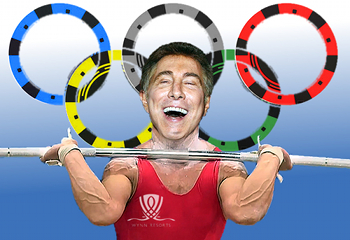
► In the Philippines, Solaire Manila hiccupped out of Entertainment City’s gate via the firing of Global Gaming Asset Management (GGAM). Meanwhile, the legal fate of Universal Entertainment chairman Kazuo Okada – and that of Universal’s Manila casino project – just got murkier as the year progressed.
► Vietnam also opened its first major integrated resort casino this summer, although its owners have been ominously quiet as to how things are faring. The country has hinted at pilot projects that would let locals gamble along with international tourists, but that pilot has yet to achieve takeoff.
► Japan finally got serious about joining the casino party, suggesting the Olympic Games can produce positive results other than drug tests. South Korea kept insisting it wanted casinos, just not ones run by deadbeats (Caesars) or alleged criminals (Universal). Russia finally convinced two companies to invest in its Vladivostok casino zone, probably after Vladimir Putin showed up at the negotiating table minus his shirt.
► Taiwan ended the year no closer to greenlighting Weidner Resorts’ proposed casino on the outlying Matsu islands while veiled threats from Chinese authorities about blocking gamblers from traveling to Taiwan sparked more debate about opening up casinos closer to large urban centers like Taipei.
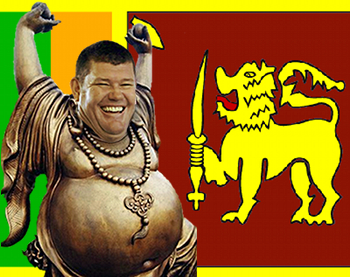
► Sri Lanka ramped up its casino plans in a major hurry, signing up three different projects for Colombo’s new designated gaming zone, although the nation’s Buddhists are feeling decidedly less nonviolent about how the process has unfolded. Perhaps Crown Resorts’ James Packer would get a better reception if he reversed his gastric bypass surgery and regained the Buddha belly he shed over the past couple years.
► Singapore’s casinos had a so-so year in terms of gaming revenue, while the government made noises about banning online gambling, and local sports lottery operator Singapore Pools suggested it would fill the void with its own online site. Convenient, that.
► Australia saw a year of online consolidation, as UK companies brandishing checkbooks wandered through the outback, buying any company with the word ‘bet’ in its name (leading to an amusing mixup in which Bwin.party mistakenly bought a local sherbet factory). Aussie politicians held fast to their bans on online poker, casino and in-play betting, while Tom Waterhouse’s continual mugging for the cameras ultimately led to the government bullying broadcasters into muzzling betting ads. On the land-based front, Crown Resorts officially made rival casino operator Echo Entertainment its bitch, whether it was orchestrating an end to Echo’s Sydney monopoly or threatening to do likewise in Queensland.
CRIME WATCH
► Two years after Black Friday, former Full Tilt Poker CEO Ray Bitar reached a $40m plea deal with US prosecutors. Former FTP pro Phil Ivey admitted to taking ‘advantages’ at the baccarat tables to ‘win’ £7.8m at London’s Crockfords casino. Sheriff Gaming CEO Stijn Flapper found himself in the custody of Dutch sheriffs over illegal gambling and money laundering charges. The Taiwanchik-Trincher Organization bust took down a prominent New York art dealer. Legends Sports shut down after a Department of Justice indictment led to Panama cancelling the site’s license. France reminded Bwin.party CEO Norbert Teufelberger that they hadn’t forgotten his 2006 arrest in La Turbie.
Las Vegas Sands paid the DOJ $47.4m while admitting it probably shouldn’t have helped a suspected methamphetamine kingpin transfer $85m from Mexico to Las Vegas in drips and drabs via mom-and-pop currency exchange kiosks. World Series of Poker 2010 main event champ Jonathan Duhamel‘s conniving ex-girlfriend was sentenced to 42 months in prison. Former Bodogers Patrik Selin and Robert Gustafsson launched a Swedish mafia branch office in Manila and are presently subject to an ongoing avalanche of criminal charges (this one I really missed). And finally, Auburn upset top-ranked Alabama in one of the most criminally negligent displays of special teams coverage I’ve ever seen.
POKER
► Despite almost universal declines among online poker operators, 888 Holdings’ poker vertical posted double-digit revenue increases this year. The company is also one of the few firms making money in Spain and the only company active in all three US states currently accepting online wagers.

► Poker sites’ continued their long overdue shift away from catering solely to the needs of high-raking grinders, further validating the strategy mapped out years ago by the Bodog recreational player model. Even the once-mighty PartyPoker took passive-aggressive steps to discourage grinders from preying on their fishier players by shrinking the typeface to the point where any grinder lacking a magnifying glass had little choice but to stick to a two-table maximum.
► The International Stadiums Poker Tour (ISPT) finally held its much-hyped event in Wembley Stadium, but the ISPT’s second event was held in a Moroccan casino’s poker room. All that’s left to do now is hire Seinfeld’s Jason Alexander as tournament director and claim the ‘S’ stands for ‘shrinkage.’
► A sequel to the movie Rounders was officially announced with the original writers on board. This caused much rejoicing among poker players, which proves just how few people actually saw Runner, Runner. From what we’re told, Rounders 2 will be set in Las Vegas and Paris, and the plot involves the protagonists attempting to play online in Nevada but the lack of liquidity means they can’t get a game going, so they switch to Paris, where Matt Damon wins the main event at the ISPT Stade de France only to learn that a random member of the Partouche clan has reneged on the guarantee, so Edward Norton beats him senseless with a particularly durable baguette. I smell Oscar!
► How does one recap the year Lock Poker had? People thought we were being unnecessarily cruel when this site began warning players and the rest of the industry three years ago that the individuals behind Lock weren’t to be trusted. Do we take satisfaction at being prescient? Far from it, considering the sheer number of Lock’s victims and the extent of their woes. But hopefully the debacle will open eyes to the fact that we don’t make a point of shitting on people without damn good reason.
► And with that, happy holidays, everyone. Drink your asses off, stuff your faces silly and pick your mistletoe moments wisely. We’ll see you next week with my predictions for the year ahead.
